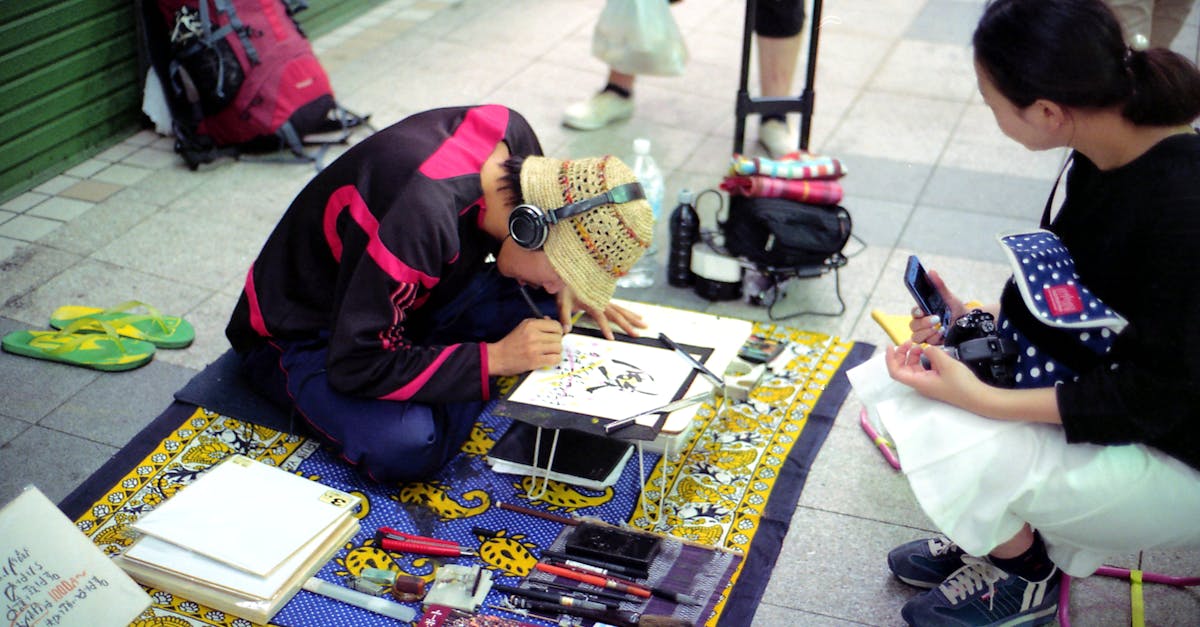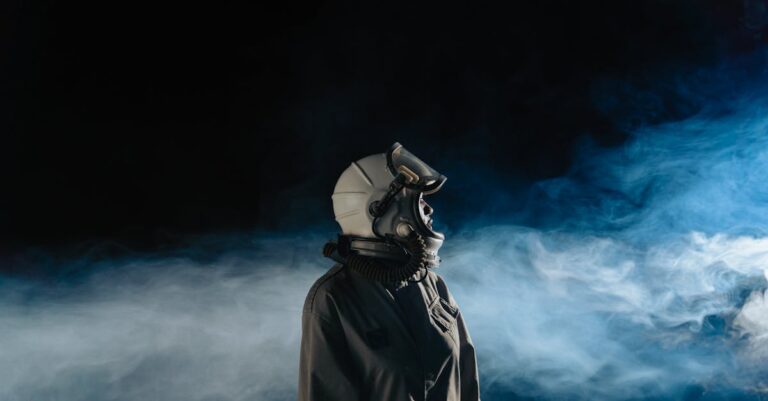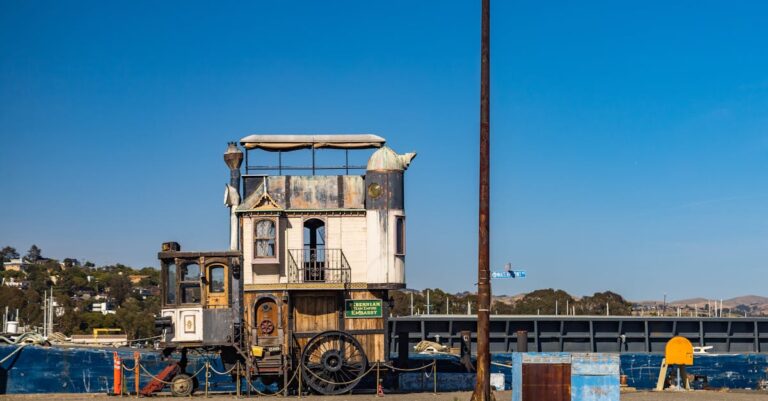
## The Echo Painter
Rain lashed against the corrugated iron roof of the warehouse, a relentless drumming that mirrored Elara’s pulse. The space smelled of damp concrete, stale coffee, and something vaguely metallic – the scent of experimentation. She gripped her charcoal tighter, knuckles white against its gritty surface. Across the vast, echoing room, the projection shimmered – a bustling Parisian street scene from 1924. Cobblestones slick with rain, the aroma of roasting chestnuts heavy in the air, a lone accordion player sawing out a melancholic tune. Detailed. Impossibly so.
“Ready, Elara?” Dr. Rhys’s voice cut through the rain’s assault, calm and precise. He stood by a console bristling with wires, his face illuminated by the soft glow of monitors displaying swirling waveforms.
She nodded, her throat dry. “As I’ll ever be.”
“Remember,” Rhys continued, his gaze unwavering, “focus on the feeling. Don’t analyze. Just *feel* it.”
Elara returned to the projection, her eyes tracing the curve of a woman’s hat, the glint of light on a wet windowpane. This wasn’t just an image; it was a nexus, a doorway. The Empath Research Council called it a Narrative Imprint – a residual emotional echo left on the fabric of time. And she, a fledgling artist struggling to find her voice, was its key.
She began to draw. Not the scene itself, but something beyond it, something she felt resonate within her – a deep-seated loneliness emanating from the woman hurrying along the sidewalk, clutching a bouquet of wilting roses. Charcoal bled onto the paper, black lines wrestling with shadows.
“Deviation detected,” a robotic voice announced from Rhys’s console, interrupting her focus. “Affective response escalating.”
Elara barely registered it. The feeling intensified, a knot tightening in her chest. It wasn’t *her* loneliness; it was something ancient, a weight she was absorbing from the past.
“Stabilize,” Rhys ordered, his fingers dancing across the console. “Maintain contact.”
She kept drawing, driven by an instinct she didn’t understand. The Parisian street began to fade, the colors leaching away until only shades of gray remained, mirroring her charcoal strokes.
“Interesting,” Rhys murmured, his eyes glued to the displays. “The imprint is collapsing under your… instantiation.”
Suddenly, a figure stepped from the fading projection—a young man with haunted eyes and paint-stained fingers. He wore a worn tweed jacket, clutched a sketchbook to his chest. He stared at her with an unsettling intensity.
“Who… who are you?” he asked, his voice raspy, unfamiliar yet achingly familiar.
Elara froze, charcoal dropping to the concrete floor. “I… I don’t know.”
He advanced cautiously, his gaze sweeping over the warehouse. “This isn’t Paris.”
“It’s… a long story,” she managed, her voice barely above a whisper.
“I feel… displaced,” he confessed, running a hand through his messy hair. “Like a fragment ripped from its moorings.”
Rhys cleared his throat, stepping forward. “Subject designation: Anton Moreau. Temporal point of origin: Paris, 1924.”
Anton’s eyes narrowed, focusing on Rhys with suspicion. “What is that device?” He gestured toward the console, his hand trembling slightly.
“A tool,” Rhys said smoothly. “To help stabilize temporal anomalies.”
“Anomalies?” Anton echoed, his voice laced with disbelief. “You speak in riddles.”
Elara found herself drawn to Anton, a strange pull she couldn’t explain. He was raw, vulnerable, radiating an aura of profound sadness. She picked up her charcoal and offered it to him.
He hesitated, then took it, his fingers brushing against hers. A jolt of electricity surged between them.
“I… I used to paint,” he said, studying the charcoal in his hand with a longing gaze. “But I haven’t… for so long.”
“Then paint,” Elara urged, a flicker of her own creative spark ignited. “Paint what you feel.”
He stared at the blank wall, then tentatively began to sketch a swirling vortex of dark colors, mirroring the chaotic energies that had ripped him from his time.
“He’s expressing,” Rhys announced, his voice tinged with excitement. “The imprint is responding to his instantiation.”
Days blurred into weeks. Elara and Anton worked side-by-side, drawing, painting, exploring the raw emotions that flooded from the Narrative Imprint. Anton’s talent blossomed under Elara’s quiet encouragement, his canvases exploding with a visceral intensity she’s never witnessed. He was creating again—not just replicating the past, but interpreting it, transforming it into something new.
“You have a gift,” Anton said one evening, his eyes reflecting the warm glow of the single lamp illuminating their corner of the warehouse. “You see things… differently.”
“So do you,” Elara countered, feeling a connection to him she’s never experienced. A shared understanding that transcended time and circumstance.
But Rhys grew increasingly concerned with the stability of the temporal corridor. The readings were fluctuating, threatening to collapse the imprint entirely.
“Anton’s presence is destabilizing the locus,” Rhys announced, his face grim. “We need to sever the connection.”
Elara’s heart plummeted. “Sever? What does that mean?”
“It means returning him to his own time,” Rhys explained, avoiding her gaze. “The longer he remains anchored here, the greater the risk of a paradox.”
“No,” Elara protested. “You can’t just send him back.”
Anton gripped her hand, his knuckles white. “It’s inevitable,” he said quietly. “I feel it.”
“But we can stabilize the imprint, find a way to keep him safe,” Elara argued desperately.
Rhys shook his head. “The risks are too great.”
“You’re prioritizing data over humanity,” Elara accused, her voice trembling with anger.
“I’m ensuring the integrity of the temporal framework,” Rhys retorted, his expression unyielding.
The argument escalated, culminating in a tense standoff between Elara and Rhys. Anton stood silently observing, his face etched with sadness.
“I can’t let you do this,” Elara finally declared, her voice filled with a newfound determination. “There has to be another way.”
She turned to Anton, her eyes shining with a spark of inspiration.
“What if we paint it?” she said, gesturing to the projection, which was flickering erratically. “What if we paint our own imprint—a stable anchor that will keep him here, where he belongs?”
Rhys stared at her incredulously. “That’s impossible! You can’t just *create* a narrative imprint.”
“We can try,” Elara insisted, her voice unwavering.
She and Anton began to paint, pouring their emotions—their longing, their hope, their shared connection—onto a massive canvas. They painted a scene of their own creation – a vibrant studio filled with sunlight, overflowing with art supplies, echoing with laughter and conversation.
As they painted, the flickering projection intensified, drawn to their collective energy. The lines between reality and illusion blurred, as if the very fabric of time was responding to their artistry.
“It’s working,” Anton breathed, his eyes wide with awe. “The imprint is solidifying.”
Suddenly, Rhys pointed to a monitor displaying rapidly fluctuating waveforms.
“Paradox imminent!” he shouted, his voice laced with panic. “The temporal corridor is collapsing!”
Elara and Anton ignored him, continuing to paint with a frenzied passion. They poured everything they had—their hopes, their fears, their love—into the final brushstrokes.
The projection stabilized, then coalesced into a vibrant scene of their own creation—a timeless studio filled with art and laughter, a refuge from the relentless flow of time.
Anton turned to Elara, his eyes filled with a profound love and gratitude. “We made it,” he whispered.
Rhys stood frozen, staring at the newly created imprint with a mixture of disbelief and awe.
“Impossible,” he muttered, his scientific worldview shattered. “You defied the laws of physics.”
Elara smiled, a warmth spreading through her heart. They hadn’t defied science; they had discovered something beyond it—the power of art, the resilience of human connection, the ability to shape reality with emotion and imagination.
She reached out and took Anton’s hand, their fingers intertwined as they gazed at the vibrant canvas that now served as their haven—a testament to the enduring power of love, art, and the unwavering belief in a future they had painted themselves. The rain outside continued to fall, but within the warehouse, a new world had been born.


